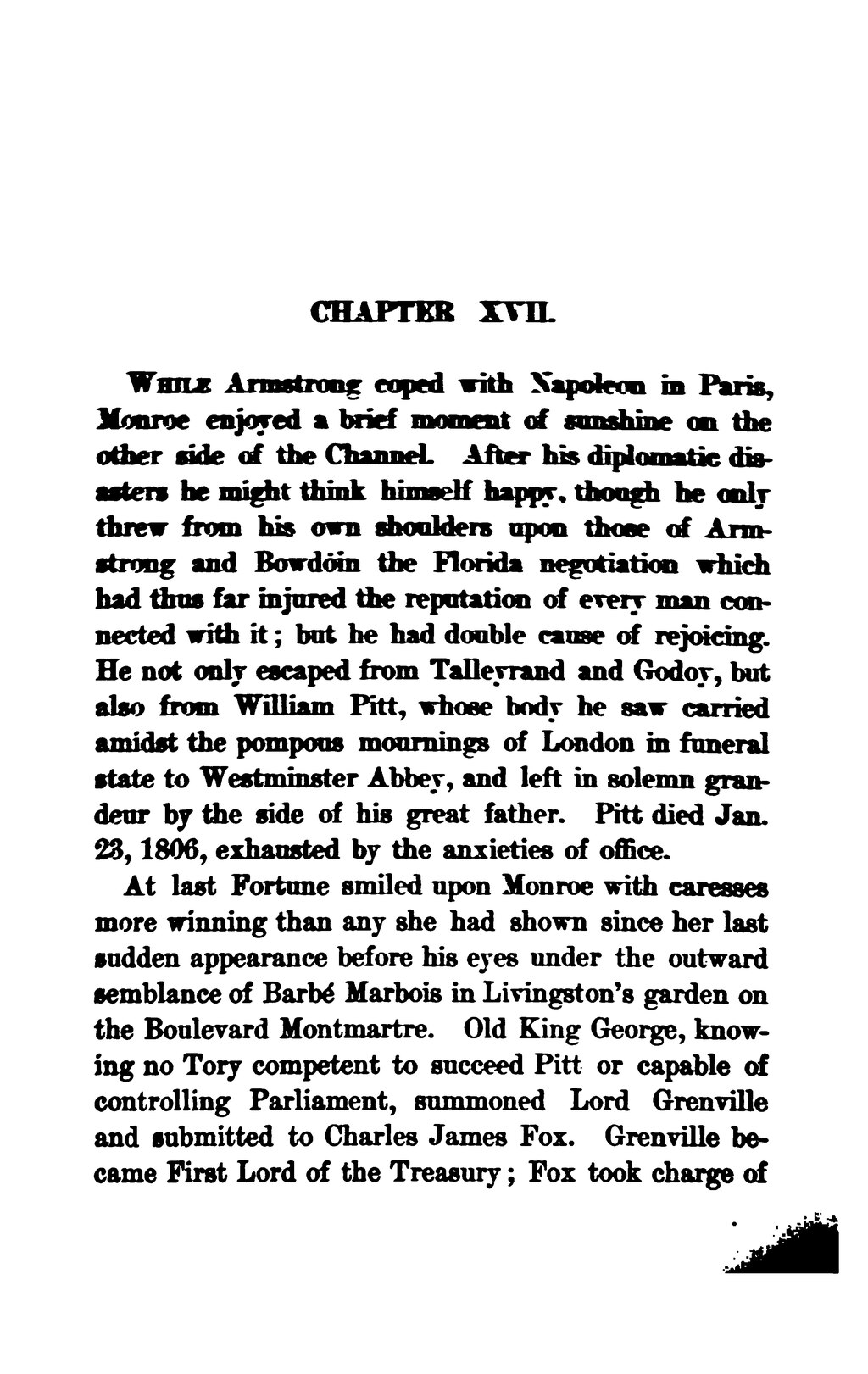Chapter 17: Monroe's Treaty
While Armstrong coped with Napoleon in Paris, Monroe enjoyed a brief moment of sunshine on the other side of the Channel. After his diplomatic disasters he might think himself happy, though he only threw from his own shoulders upon those of Armstrong and Bowdoin the Florida negotiation which had thus far injured the reputation of every man connected with it; but he had double cause of rejoicing. He not only escaped from Talleyrand and Godoy, but also from William Pitt, whose body he saw carried amidst the pompous mournings of London in funeral state to Westminster Abbey, and left in solemn grandeur by the side of his great father. Pitt died Jan. 23, 1806, exhausted by the anxieties of office.
At last Fortune smiled upon Monroe with caresses more winning than any she had shown since her last sudden appearance before his eyes under the outward semblance of Barbé Marbois in Livingston's garden on the Boulevard Montmartre. Old King George, knowing no Tory competent to succeed Pitt or capable of controlling Parliament, summoned Lord Grenville and submitted to Charles James Fox. Grenville became First Lord of the Treasury; Fox took charge of
